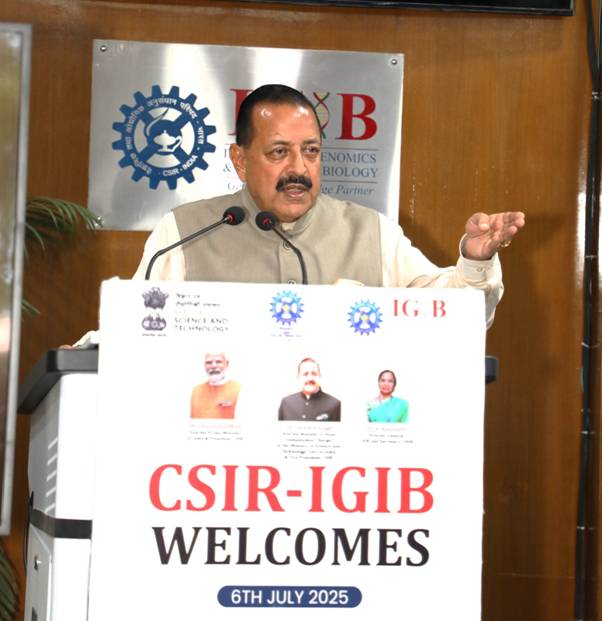In a landmark step toward data-driven healthcare, India on Saturday launched its first National Biobank under the Phenome India initiative, aiming to build one of the world’s most comprehensive health databases tailored to the country’s vast genetic and socio-economic diversity.
The facility, inaugurated by Union Minister Dr. Jitendra Singh at the CSIR-Institute of Genomics and Integrative Biology (IGIB) in New Delhi, will serve as a central repository of biological samples and health information drawn from a diverse cohort of 10,000 individuals across the country. It is expected to fuel cutting-edge research in genomics, chronic diseases, and personalized medicine.
A New Chapter in India’s Biomedical Ambitions
Modeled after the UK Biobank, the Indian project focuses on deep phenotyping — the process of analyzing a person’s traits at a molecular and cellular level — to better understand the complex relationship between genes, environment, lifestyle, and disease. Scientists say the facility will help address uniquely Indian health conditions, including the phenomenon of “lean obesity,” where individuals appear slim but carry metabolic risk factors such as high central fat.
“This biobank is not just a collection of data; it is a foundation for future-proofing India’s healthcare system,” Dr. Singh said. “By decoding who we are at the genomic level, we can anticipate, prevent, and personalize treatment for chronic and rare diseases.”
A Convergence of Science and Policy
The launch is part of the Phenome India program, a national mission to generate longitudinal, anonymized data across populations to study long-term health trends. The biobank will collect genomic sequences, lifestyle metrics, clinical reports, and biospecimens such as blood and tissue. It has already begun enrolling participants from varied regions and backgrounds to ensure inclusivity and representative sampling.
CSIR Director General Dr. N. Kalaiselvi called the initiative a “baby step with global aspirations,” emphasizing that India is now positioned to become a leading contributor to international genomic databases.
The IGIB, a pioneer in COVID-19 genome sequencing and rare disease diagnostics, will operate the biobank, drawing on its legacy of research in antimicrobial resistance, liver fibrosis, and sickle cell disease.
Toward a Health Data Economy
Beyond research, officials hope the biobank will create a foundational layer for a future health data economy. The data can be used to train AI models for diagnostics, enable biotech startups to develop India-specific therapies, and help regulators and policymakers craft evidence-backed health interventions.
“The possibilities are enormous,” said Dr. Souvik Maiti, Director of IGIB. “From public health planning to pharma innovation, the biobank will be a keystone infrastructure.”
Dr. Singh also urged collaboration between public institutions, private sector stakeholders, and global health bodies to expand the program’s reach and relevance. “We must ensure that our science reaches the patient’s bedside,” he said.
A Step Toward Preventive, Personalized, and Participatory Care
At its core, the National Biobank represents a shift in Indian healthcare from reactive treatment to preventive and predictive care. By enabling long-term studies of how genes interact with environment and lifestyle, the biobank is expected to help decode the origins of India’s growing burden of lifestyle diseases such as diabetes, hypertension, and cancer.
“This is about building healthcare for the future,” said Dr. Kalaiselvi. “Where the treatment begins not in the ICU, but long before symptoms even appear.”


